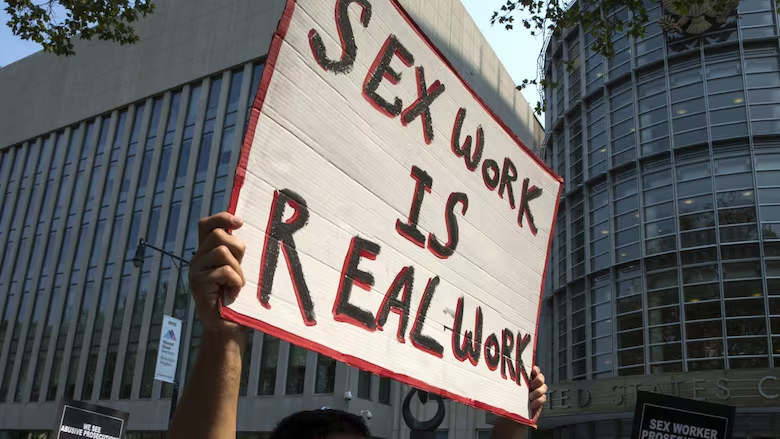B.C.-wide 'bad date' reporting system aims to improve sex worker safety
The peer-to-peer database will allow sex workers to report violent clients and search new ones for red flags

A provincewide database for sex workers to report and look up "bad dates" — clients who are violent or pose a safety concern — is one step closer to reality thanks to a three-year funding commitment from the Law Foundation of British Columbia and an anonymous B.C.-based family foundation.
Once up and running, the provincial bad date reporting system will be the first of its kind in Canada, giving sex workers a peer-to-peer online resource to help keep each other safe.
Mebrat Beyene, executive director of sex worker support organization WISH, said the database will help formalize what many support organizations already do informally.
"It is really significant. This is something that a number of us across the province have ... identified as a need for years. And it's also something that, in terms of that reporting, almost all of us do off the sides of our desk without dedicated funding," she said.
Beyene anticipates the final product will likely be an app that takes in reports of bad dates and makes them searchable.
"Even if you have partial licence plates or partial phone number or a description of a potential date, that could be an easy and accessible way to enter that information and see if there's any previous reports or flags," she said.
"You can even put in phrases and descriptions — maybe this guy always asks for these types of things, or the nature of his behaviour — that might allow you to see whether there's any reports about that person."

Sex workers experience substantially higher rates of violence than the general population — and the rates are even higher for sex workers who are Indigenous, homeless, immigrant, migrant and trans.
The vast majority of violence experienced by sex workers is never reported to police because of stigma, criminalization, and countless other barriers.
Beyene said 80 per cent of sex workers who report violence to WISH do not want to report it to police.
Collaborators hope the bad date reporting system will fill an urgent need in more remote parts of the province where it's particularly hard to track predators between far flung communities.
"Northeast B.C. has the highest levels of resource extraction in the country and, therefore, is flooded with transient, temporary workers. The power imbalance and transitory nature of resource based economies put women who sell or trade sex at increased risk," said Heather Paddison, community health educator at Positive Living North.
Beyene says she anticipates the data collected will provide useful insights over the longer term.
"It's also a way to aggregate the information to be able to analyze the types of violence so that we can escalate the conversation ... about what is happening for this population: how it differs from region to region, what the implications are on policy, legislation, public safety and the reluctance to get police involved," she said.